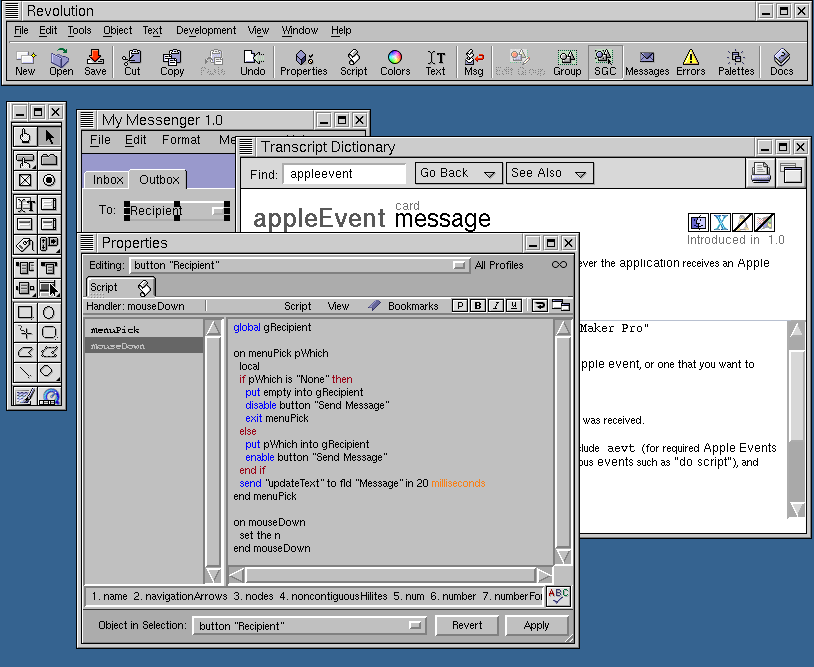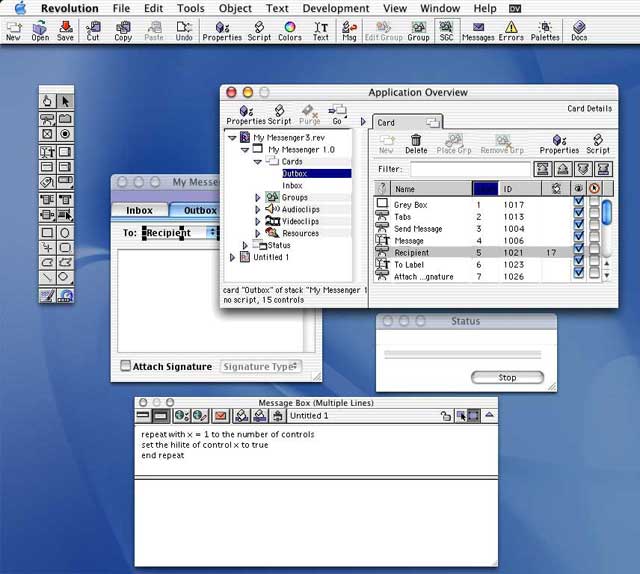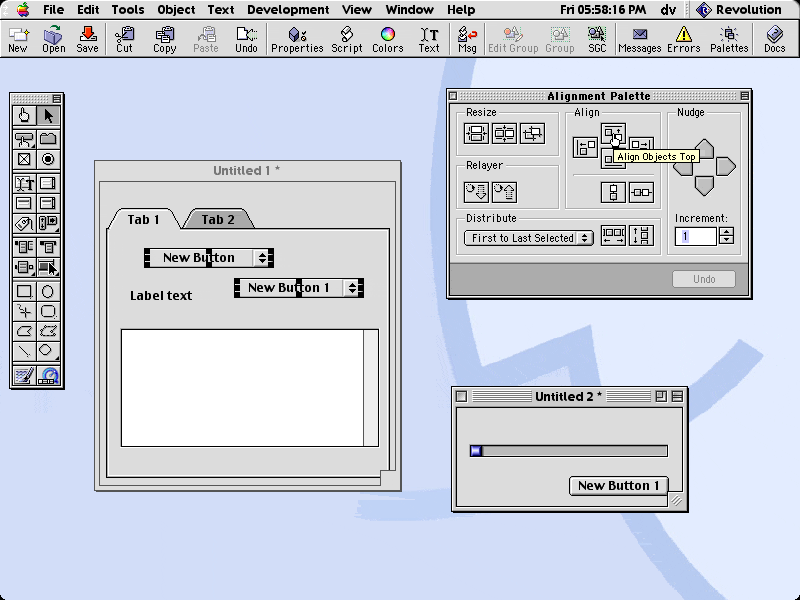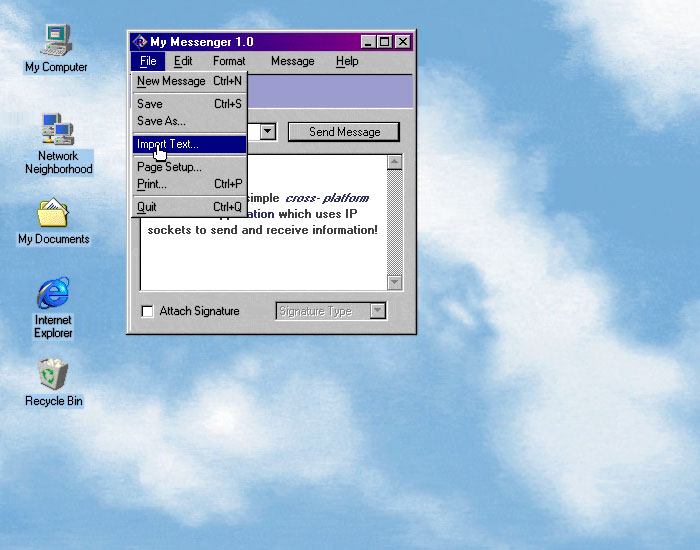The votes are in. PPC Linux is here to stay, but please don’t expect a weekly column (unless you all want to micropay me individually).
Today I want to look at a specific application program named Runtime Revolution – it runs not only on Linux, but also in Mac OS, Mac OS X, Windows, IRIX, Solaris, and more.
I am not a programmer, but I do produce a lot of multimedia applications. In the old days, I used Apple’s HyperCard, but this great little application is a letdown on a number of fronts, including the fact that it won’t run in any OS other than the Classic Mac OS.
As time passed, most HyperCard developers moved on – the arty types like myself moved to Macromedia Director (where is the OS X version?), and the rest settled for either SuperCard or REALbasic.
There was a cross platform alternative, MetaCard, but it was difficult to use and cost the earth, so it was a minority interest. It therefore came as a surprise to me that someone had developed a port of MetaCard which promised ease of use whilst also maintaining true cross-platform development.
It’s called Runtime Revolution, is produced in Scotland by a company called (in a fit of originality) Runtime Revolution Ltd. As this is the PPC Linux column, I downloaded the PPC/Linux free trial version (as well as Mac OS X and IRIX versions).
Revolution is actually based on the MetaCard code base, but it is enhanced in a number of important ways, most especially in the area of user interface. Anyone who has used a stack-based Rapid Application Development tool, be it HyperCard, SuperCard, or MetaCard, will be in familiar territory. Scripting is handled by MetaTalk, MetaCard’s native scripting language, which has syntax familiar enough to most Mac scripting languages from Lingo to HyperTalk.
Revolution is of most interest to me because Macromedia haven’t yet released a version of Director for Mac OS X, but also because I can work on my SGI machine, which is equipped with a 20″ screen, and see the results in Mac OS X and Linux on my iMac.
The nature of my work is such that Revolution is almost too capable – Director is much more my style, but that doesn’t mean that Revolution is difficult to use. In fact, though I’ve grown used to Director’s stage- and cast-based theatrical metaphor over the years, Revolution is probably easier to use if you’re starting from scratch.
The realities of the graphic and new media design industry mean that I won’t be ditching Director anytime soon, but on the other hand, I may just invest in a full copy of Revolution and use it when the design brief is wide enough to allow me to work on my platform of choice.
The biggest boon is the write once, run anywhere nature of Revolution. Sure, Java is also cross-platform, but the only Java application I’ve ever used that isn’t a total nightmare of sloth and bloat is the X-Ray software, ImageJ. Besides, Java is just too complex for non-programmers like myself.
If you develop for PPC/Linux in Revolution, all you need to port your application to other systems – such as IRIX, Solaris, Windows, or the Mac OS – is a suitable machine and a copy of Revolution appropriate to the OS. No rewriting or debugging will be necessary, and remember that it’s perfectly possible to run Mac OS 9, Mac OS X, and Linux on a single machine, so an iMac can become a development platform for three different operating systems – imagine how you’ve expanded your potential audience, literally at the click of a button.
You may not have heard of it before, but with some publicity Revolution could give REALbasic and even Director a run for the money.
Okay, so it runs in Linux, but why is this in the PPC/Linux column instead of elsewhere on Low End Mac? Well, I am issuing a challenge. Revolution can import HyperCard stacks, so if you’re an ex-HyperCard developer and run Linux (or OS X), why not port your old stacks and apps to Linux (and OS X)? You could even start a small company making shareware applications that not only run in the Mac OS, but also in Windows and Unix.
People always complain that Linux hasn’t got enough applications. Well, with Revolution we now have the tools at hand to change that perception forever.
Further Reading
Keywords: #runtimerevolution #ppclinux
Short link: http://goo.gl/lk5qFy
searchword: runtimerevolution





